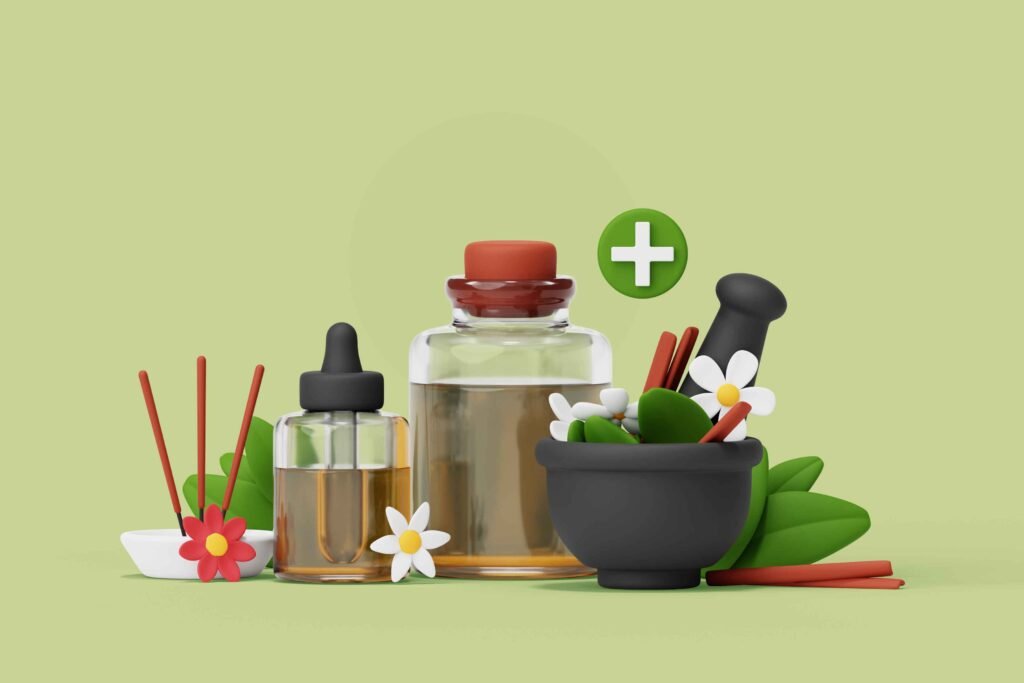
Holistic Approaches to Achieve Hormonal Balance Naturally: Effective Tips and Strategies
Hormonal imbalances can impact various aspects of your health, including mood, energy levels, weight, and even long-term well-being. Adopting a holistic approach to hormonal balance is a natural and effective way to restore harmony in the body. This blog delves into practical, evidence-based strategies to help you achieve hormonal balance.
Understanding Hormonal Imbalance
What Are Hormones and Their Role in Your Body?
Hormones are chemical messengers produced by the endocrine glands. They regulate vital functions such as metabolism, reproduction, mood, and growth. Common hormones include estrogen, testosterone, cortisol, insulin, and thyroid hormones.
When hormones are out of balance, it can lead to:
- Fatigue
- Weight gain or loss
- Irregular menstrual cycles
- Mood swings or depression
- Skin issues, such as acne or dryness
Common Causes of Hormonal Imbalance
- Stress: Chronic stress elevates cortisol levels, disrupting other hormones.
- Poor Diet: Excess sugar, refined carbs, and processed foods can trigger imbalances.
- Lack of Sleep: Sleep deprivation affects the production of growth hormone and melatonin.
- Environmental Toxins: Exposure to endocrine disruptors can mimic hormones and cause imbalances.
The Foundation: Lifestyle Changes for Hormonal Balance
1. Optimize Your Diet
A nutrient-dense diet is the cornerstone of hormonal health.
- Focus on Whole Foods: Include plenty of fruits, vegetables, lean proteins, and healthy fats.
- Healthy Fats Are Key: Foods like avocados, nuts, seeds, and olive oil help produce hormones.
- Avoid Sugar and Refined Carbs: These contribute to insulin resistance, a major disruptor of hormonal balance.
- Incorporate Fiber-Rich Foods: Flaxseeds, chia seeds, and leafy greens support estrogen metabolism.
- Eat Balanced Meals: Ensure your meals have a good ratio of protein, fat, and carbs to stabilize blood sugar.
2. Prioritize Stress Management
Chronic stress leads to elevated cortisol, which suppresses other hormones.
- Practice Mindfulness: Techniques like meditation and yoga can lower stress.
- Deep Breathing Exercises: Activating your parasympathetic nervous system helps reduce cortisol levels.
- Adaptogenic Herbs: Ashwagandha and Rhodiola are natural remedies that support stress response.
3. Get Quality Sleep
Sleep plays a pivotal role in hormonal regulation.
- Stick to a Schedule: Go to bed and wake up at the same time daily.
- Create a Sleep-Friendly Environment: Use blackout curtains, keep the room cool, and avoid screens before bed.
- Support Melatonin Production: Limit blue light exposure in the evening and consider natural supplements if needed.
4. Move Your Body Mindfully
Exercise is a natural way to enhance hormonal balance.
- Strength Training: Boosts testosterone and helps regulate insulin levels.
- Low-Impact Workouts: Yoga and Pilates support adrenal health and reduce cortisol.
- Avoid Overtraining: Excessive exercise can elevate cortisol and disrupt hormones.
Natural Supplements for Hormonal Support
1. Omega-3 Fatty Acids
Found in fish oil, flaxseeds, and walnuts, omega-3s reduce inflammation and support hormone production.
2. Magnesium
This essential mineral aids in over 300 biochemical reactions, including stress management and blood sugar regulation.
3. Vitamin D
Crucial for hormone production, vitamin D helps with mood regulation and supports the thyroid gland.
4. Herbal Remedies
- Maca Root: Known to enhance libido and energy while balancing hormones.
- Chasteberry (Vitex): Supports progesterone production and reduces PMS symptoms.
5. Probiotics
A healthy gut is essential for hormone metabolism. Probiotics from yogurt, kimchi, or supplements improve gut health.
The Role of Detoxification in Hormonal Balance
Detoxification is a natural process that helps the body eliminate toxins and support hormonal health. Hormones can be disrupted by environmental toxins, unhealthy diets, and poor lifestyle habits. A well-functioning detoxification system can significantly enhance hormonal balance.
1. Support Liver Health
The liver is a vital organ for detoxification and hormone metabolism.
- Cruciferous Vegetables: Foods like broccoli, kale, and Brussels sprouts contain compounds that support liver detoxification.
- Hydrate Adequately: Water is essential for flushing out toxins. Aim for at least 8–10 glasses daily.
- Limit Alcohol and Caffeine: These substances can burden the liver, reducing its detoxification efficiency.
- Include Turmeric and Milk Thistle: Both have protective effects on the liver and promote toxin removal.
2. Improve Gut Health
The gut plays a key role in hormone regulation, particularly estrogen metabolism.
- Prebiotic and Probiotic Foods: Include garlic, onions, bananas, and fermented foods like sauerkraut and kefir to maintain a healthy gut microbiome.
- Avoid Processed Foods: These can disrupt gut bacteria, leading to imbalances in hormone processing.
- Regular Fiber Intake: Fiber helps bind and excrete excess hormones, particularly estrogen, from the body.
3. Minimize Exposure to Endocrine Disruptors
Everyday products can expose you to chemicals that mimic hormones and interfere with natural hormonal functions.
- Switch to Natural Personal Care Products: Avoid products with parabens, phthalates, and synthetic fragrances.
- Use Glass Containers: Replace plastic containers with glass to avoid BPA exposure.
- Filter Your Water: Tap water can contain hormone-disrupting chemicals; use a high-quality filter to reduce exposure.
The Mind-Body Connection in Hormonal Health
The interplay between your mental and physical health has a profound impact on your hormonal balance. Stress, anxiety, and emotional health directly influence hormone production and regulation.
1. Practice Regular Meditation
Meditation helps reduce cortisol levels and supports overall hormonal harmony.
- Start Small: Dedicate 5–10 minutes daily to deep breathing or guided meditation.
- Focus on Mindfulness: Being present in the moment reduces stress-related hormonal disruptions.
2. Engage in Yoga and Stretching
Yoga combines physical movement and mindfulness, making it highly effective for hormonal balance.
- Incorporate Hormone-Boosting Poses: Poses like Child’s Pose, Cobra, and Cat-Cow stimulate glands like the thyroid and adrenal glands.
- Balance Stress Hormones: Regular practice lowers cortisol and improves insulin sensitivity.
3. Cultivate Gratitude
Gratitude has been shown to improve mental well-being and reduce stress-related hormonal imbalances.
- Start a Gratitude Journal: Writing down three things you are thankful for daily can shift your perspective and calm your mind.
- Focus on Positive Interactions: Spend time with people who uplift you to lower stress hormones and boost serotonin.
Daily Routines for Hormonal Balance
Establishing consistent daily habits is one of the most effective ways to achieve and maintain hormonal balance.
1. Morning Rituals to Kickstart Hormonal Health
How you start your day can set the tone for your hormones.
- Lemon Water for Detoxification: Begin your day with warm lemon water to support liver function.
- Protein-Rich Breakfast: Include eggs, Greek yogurt, or a protein smoothie to stabilize blood sugar.
- Light Movement: A short morning walk or stretch can awaken your endocrine system.
2. Midday Energy Boosters
Avoid energy crashes that disrupt hormones by incorporating these habits:
- Healthy Snacks: Opt for nuts, seeds, or fresh fruit instead of sugary snacks.
- Stay Hydrated: Dehydration can strain adrenal function, leading to cortisol imbalances.
- Take Short Breaks: Incorporate 5-minute mindfulness or stretching sessions to lower stress hormones.
3. Evening Wind-Down Routine
Proper wind-down practices promote better sleep and overall hormonal health.
- Limit Screen Time: Reduce blue light exposure at least an hour before bed to support melatonin production.
- Herbal Teas for Relaxation: Chamomile or valerian root tea can naturally calm the nervous system.
- Journaling or Reading: Non-stimulating activities help your mind relax and prepare for restorative sleep.
Herbal and Holistic Therapies for Hormonal Balance
1. Acupuncture
Acupuncture has been used for centuries to address hormonal imbalances, particularly those related to stress and fertility.
- Reduces Cortisol: Helps alleviate stress by regulating the hypothalamic-pituitary-adrenal axis.
- Supports Reproductive Health: Can improve menstrual irregularities and fertility issues.
2. Aromatherapy
Essential oils like lavender, clary sage, and geranium can support hormonal health.
- Stress Reduction: Diffuse lavender oil to lower cortisol.
- Menstrual Support: Use clary sage oil for abdominal massage during PMS.
- Mood Enhancement: Citrus oils like orange or lemon boost serotonin levels.
Sustainable Long-Term Strategies for Hormonal Balance
Achieving hormonal balance naturally requires consistency and a commitment to long-term health. While dietary adjustments, stress management, and detoxification are vital, creating a sustainable routine ensures lasting benefits. This section explores practical strategies to help you maintain hormonal harmony over time.
Personalized Nutrition for Long-Term Hormonal Health
Nutrition is not a one-size-fits-all solution, and tailoring your diet to your body’s unique needs is essential for maintaining hormonal balance.
1. Understand Your Body’s Specific Needs
- Hormonal Testing: Regular tests can identify deficiencies or imbalances, such as low thyroid hormones or high cortisol levels.
- Work with a Nutritionist: A professional can design a meal plan specific to your hormonal needs.
2. Rotate Your Foods
Eating the same foods daily can lead to nutrient deficiencies and sensitivities.
- Seasonal Eating: Incorporate fruits and vegetables that are in season for optimal nutrient intake.
- Avoid Food Sensitivities: Eliminate common triggers like gluten, dairy, or soy if they cause digestive issues or inflammation.
3. Balance Blood Sugar Continuously
Keeping blood sugar stable is crucial for long-term hormonal health.
- Eat Every 3–4 Hours: Small, balanced meals prevent sugar spikes and crashes.
- Combine Protein with Carbs: Pairing these macronutrients slows glucose absorption.
Consistency in Physical Activity
Exercise is a powerful tool for hormonal regulation when done consistently and mindfully.
1. Choose Exercises That Work for You
Not all workouts are suitable for everyone.
- Listen to Your Body: If intense workouts cause fatigue or stress, opt for low-impact alternatives like walking or yoga.
- Incorporate Resistance Training: Building muscle helps regulate testosterone and growth hormone levels.
2. Keep It Fun and Varied
Monotony in your exercise routine can lead to burnout.
- Try New Activities: Dancing, hiking, or swimming can be enjoyable and effective.
- Set Achievable Goals: Small milestones keep you motivated and consistent.
The Importance of Hydration for Hormonal Health
Water is an often-overlooked component of hormonal balance. Proper hydration supports detoxification, digestion, and energy levels.
1. Hydrate Consistently
- Drink First Thing in the Morning: Start your day with a glass of water to rehydrate after sleep.
- Add Electrolytes: Coconut water or a pinch of Himalayan salt can replenish essential minerals.
2. Avoid Sugary Drinks
Sodas and energy drinks can spike insulin levels, disrupting hormonal balance.
- Opt for Herbal Teas: Teas like green tea, rooibos, or chamomile provide hydration and hormonal benefits.
Embracing Mind-Body Practices for Long-Term Balance
Maintaining hormonal balance isn’t just about physical health; mental and emotional well-being also play a critical role.
1. Daily Mindfulness Practice
Mindfulness reduces stress and promotes a positive outlook, supporting hormone regulation.
- Morning Gratitude Practice: Start your day with gratitude to set a calming tone.
- Mindful Eating: Pay attention to hunger cues and savor your meals to reduce stress.
2. Deep Breathing Techniques
Simple breathing exercises can quickly lower cortisol levels.
- Box Breathing: Inhale for four counts, hold for four, exhale for four, and pause for four.
- Diaphragmatic Breathing: Focus on expanding your belly while inhaling to activate the parasympathetic nervous system.
3. Journaling for Emotional Release
Journaling is a therapeutic tool for processing emotions and reducing stress-related hormonal imbalances.
- Free Writing: Spend 10 minutes writing your thoughts without judgment.
- Track Progress: Note improvements in energy, mood, or menstrual cycles to understand your body better.
Building a Hormone-Safe Environment
Your surroundings can significantly impact your hormonal health. Minimizing exposure to harmful toxins is essential for long-term balance.
1. Go Natural with Household Products
Many cleaning products and air fresheners contain chemicals that disrupt hormones.
- Use Non-Toxic Alternatives: Vinegar, baking soda, and essential oils can replace chemical-laden products.
- Ventilate Your Space: Open windows regularly to reduce indoor air pollution.
2. Pay Attention to Skincare and Makeup
Skincare and makeup often contain endocrine-disrupting chemicals.
- Switch to Organic Products: Look for paraben-free, phthalate-free, and sulfate-free options.
- DIY Skincare: Simple homemade remedies using natural ingredients like aloe vera and coconut oil can be effective.
The Power of Routine and Consistency
Consistency is the key to sustainable hormonal balance. Creating a daily routine that incorporates healthy habits ensures you stay on track.
1. Create a Structured Schedule
A predictable routine reduces stress and supports your circadian rhythm.
- Set Regular Meal Times: Eating at consistent times helps regulate insulin and cortisol.
- Prioritize Sleep: Aim for 7–9 hours of uninterrupted sleep nightly.
2. Make Small, Sustainable Changes
Drastic changes can be overwhelming and unsustainable.
- Start with One Habit at a Time: Gradually incorporate changes like healthier meals or mindfulness practices.
- Track Progress: Use a journal or app to monitor improvements in energy, mood, and other symptoms.
When to Seek Professional Help
Sometimes, hormonal imbalances require professional intervention. Don’t hesitate to reach out to a healthcare provider if symptoms persist despite lifestyle changes.
1. Consult an Endocrinologist
An endocrinologist specializes in hormonal health and can provide targeted solutions for complex issues.
2. Explore Functional Medicine
Functional medicine practitioners take a holistic approach, focusing on the root causes of imbalances.



